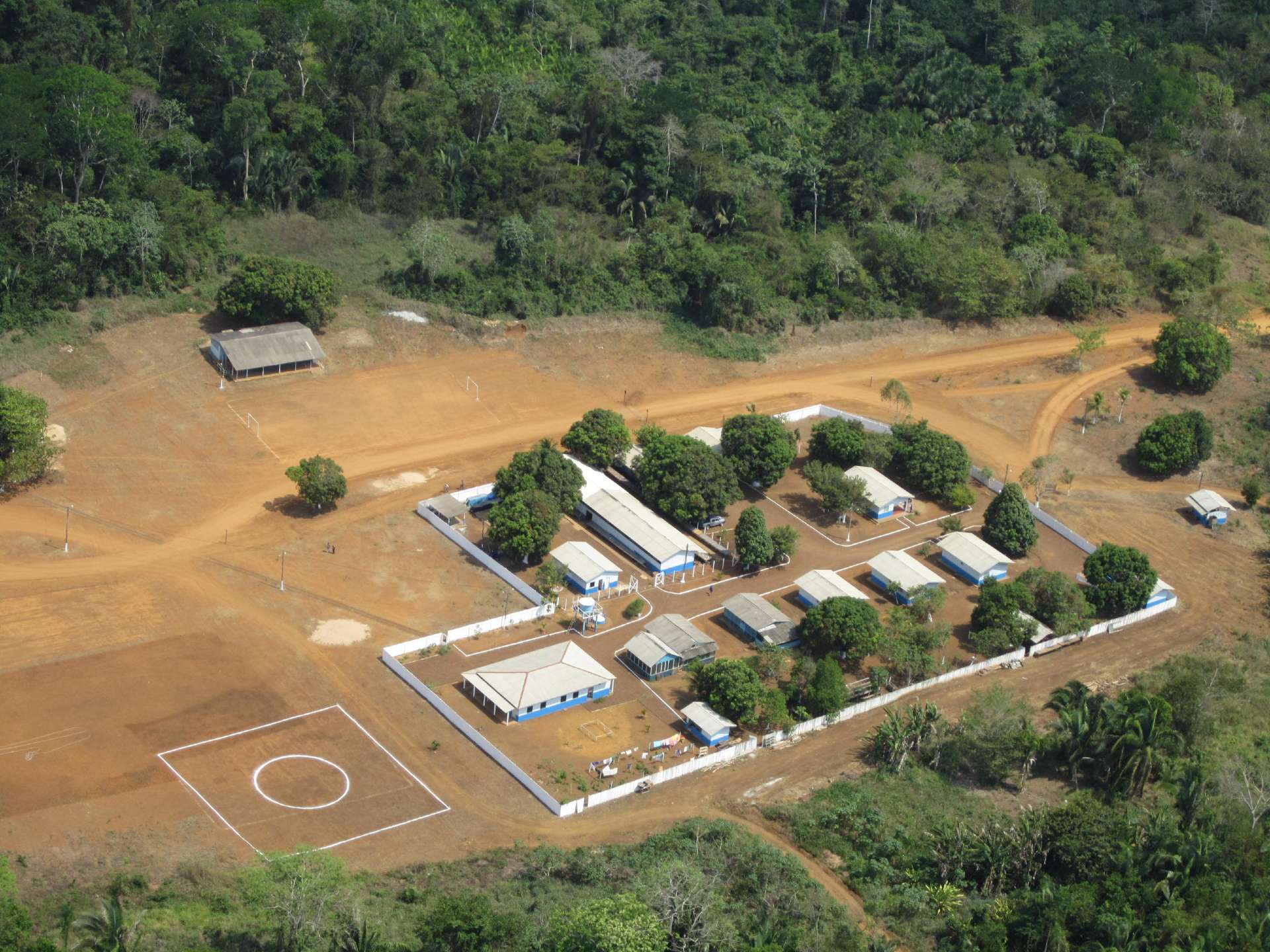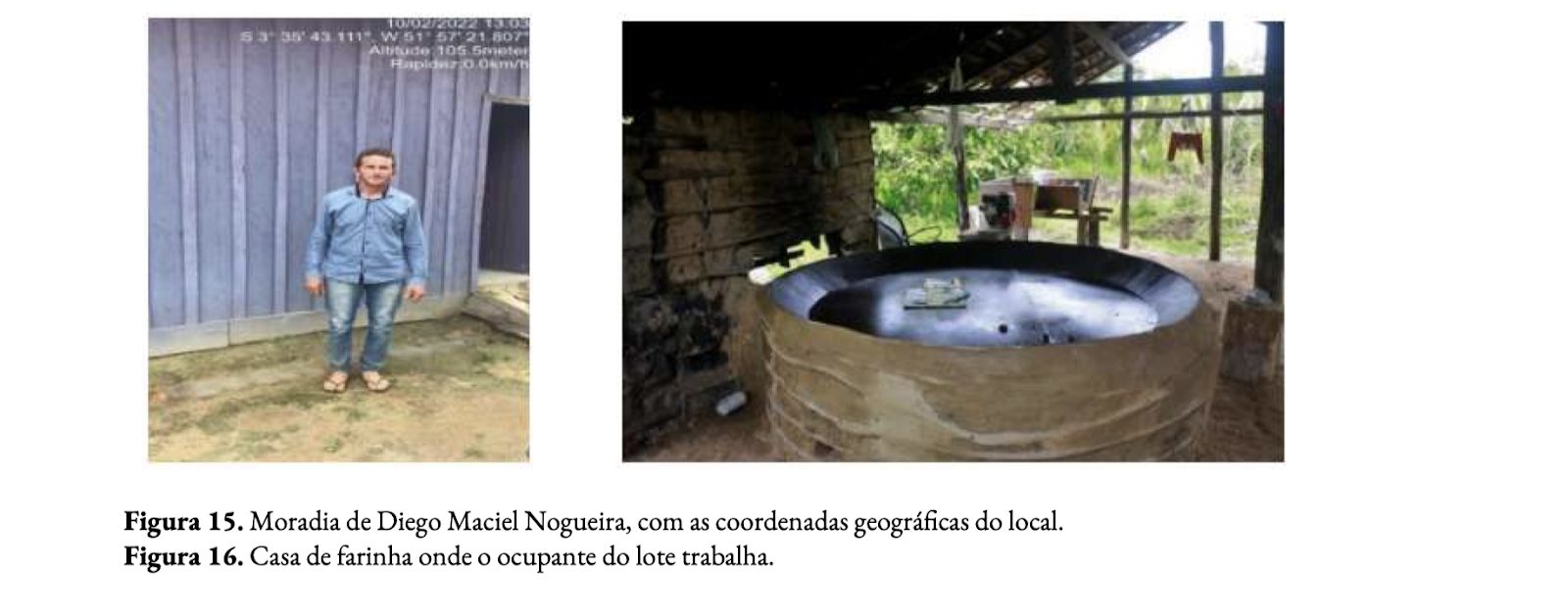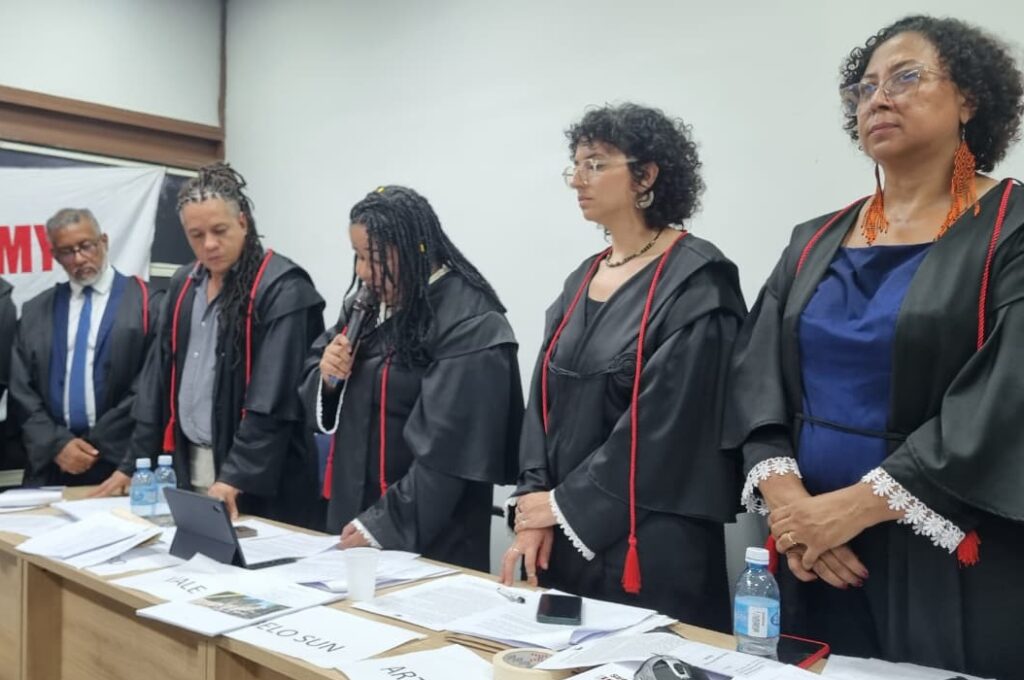PRESSURE MOUNTS ON the Lula administration to annul the contract that handed over 2,428 hectares of federal land to Canadian mining company Belo Sun to extract gold in an area allocated to a land reform settlement in Pará.
Although the project is considered strategic by the Ministry of Mines and Energy, some in the government advocate that the land use concession contract signed by INCRA during the Bolsonaro administration should be annulled.
The different views within the current administration became clear after the National Agrarian Ombudsman’s Office, linked to the Ministry of Agrarian Development, asked INCRA to annul the contract. In a July 2023 report obtained by Repórter Brasil, the Ombudsman’s Office says that the procedure that resulted in the transfer of the area to Belo Sun was marked by “coercion, violence and illegal displacement.”
The ombudsman’s document also stresses that the land concession process included no social participation. INCRA’s presidency and attorney’s office have not yet taken a stance on the report.
“Some people there are under threat, facing major violence, and with very few legal resources. It is our understanding that it is a critical conflict that may have a very tragic outcome any time,” says ombudswoman Cláudia Dadico, who signed the report. She is the head of the Department of Mediation and Conciliation of Agrarian Conflicts at the Ministry of Agrarian Development.
Under the contract signed in November 2021, INCRA transferred the settlement’s lots to Belo Sun in exchange for part of the gold production. But the agreement is being challenged in court by the Federal Public Defender’s Office (DPU) and the State of Pará Public Defender’s Office (DPE-PA). The agencies claim that the agreement escaped Congress scrutiny as a result of a maneuver at the time.
This is because any negotiation over public areas with more than 2,500 hectares must be approved by Congress. The suspicion is that INCRA helped to circumvent this requirement by granting the mining company a slightly smaller area of 2,428 hectares. “The fraud they carried out to avoid Congress authorization is clear,” says federal public defender Marcos Wagner Teixeira, one of the lawyers who filed the lawsuit to annul the contract.
In early February, the Federal Prosecution Service (MPF) endorsed the request for annulment in a statement sent to the Court on January 30.
When contacted by Repórter Brasil, Belo Sun stated that it “trusts that the validity of the contract will be upheld at the end of the legal procedures.” Read the company’s full response.
In addition, a group of protesters opposed to the installation of the mine remains at the site, in an occupation that began in June 2022. They demand that the area be allocated for land reform again. Last October, the Canadian mining company asked the Pará court to arrest 40 protesters.
Suspected coercion

The area in dispute is located within the Ressaca Settlement Project, created in 1999 to house 600 small farmer families in just over 30,000 hectares between the municipalities of Altamira and Senador José Porfírio, in northern Pará. The place is close to the area known as Volta Grande do Xingu (the Great Bend of the Xingu River), already affected by the Belo Monte dam.
In 2021, INCRA granted part of the settlement area to Belo Sun, which also received part of the Ituna federal land, another government area in the region, to establish the largest open-pit gold mine in Brazil. In return, INCRA would receive part of the profits from gold production.
In the lawsuit, the Public Defender’s Office argues that, before Belo Sun received the federal lands from INCRA, it had already started an illegal procedure to acquire the lots, obtaining around 3,400 hectares.
In its response to Repórter Brasil, Belo Sun stated that it does not intend to expand its area of operation. “The company did not obtain the concession of 2,428 hectares for the purpose of expanding the project area and using more than 2,500 hectares. It reaffirms that it will not occupy any hectare beyond the area granted under the contract and approved in the environmental license. Therefore, such allegation is absolutely speculative, inappropriate and fallacious.”
To justify the concession of land reform lots to the mining company, INCRA claimed in 2021 that the area would not be occupied, since the settlers had abandoned the site. However, a technical visit by the Federal Public Defender’s Office refuted that claim. The Public Defender’s Office also criticizes the treatment given to the settlers who had allegedly abandoned the land. In 2018, INCRA notified 124 families to defend themselves against the accusation. However, the notification would have been made only in the online edition of the Federal Official Gazette.
Many of those families do not even have access to the internet and, according to the lawyers, they did not know that they would have to respond to the accusations, which makes the procedure illegal. After the notification, 94 families were excluded from the list of beneficiaries of the land reform programme.
Even so, a report issued by INCRA in January this year points out that 329 families that had been settled under the land reform programme live in the Ressaca Settlement Project, in addition to 97 that had already received their land titles.
Illegal purchases
Before filing the lawsuit, the Federal Public Defender’s Office made technical visits to the settlers in 2021 and 2022. The defenders mapped at least 29 lots that would have been illegally sold to Belo Sun, totalling 1,761 hectares. They also found three lots in the Ituna federal land that had been illegally sold, totalling 1,734 hectares.
Some settlers who sold the land said at the time that they signed powers of attorney to the company to supposedly regularize the transfer at INCRA. They also signed land lease contracts, which allowed them to continue living and producing in the properties.
One of the settlers, Diego Maciel Nogueira, told the Public Defender’s Office that his parents were illiterate when they sold their property to the mining company. The negotiation was carried out with a man who introduced himself as a representative of Belo Sun.
“We know [him] as Toninho, but I don’t know his real name. He came to say that we were supposed to tell INCRA that we no longer needed anything, that everything was fine. But things weren’t fine because they paid us, but they should have resettled us somewhere else,” Nogueira told the Public Defenders in February 2022. In the same statement, he said that INCRA had last visited the region in 2016.

The Federal Prosecution Service points out another problem in the transfer of public land. The negotiation should have excluded the area from the land reform programme as required by law, which did not occur according to Federal Prosecutor Rafael Sousa.
“There has been no change in the status of that public property and no Congress authorization for the sale of real estate owned by the government. Any of these reasons is enough to nullify the Use Concession Agreement 1224/2021,” he says in a report included in the case records that attempts to cancel the concession.
Strategic project
INCRA’s agreement with Belo Sun was only possible after Normative Instruction 112/2021 was published. That is a rule approved by the Bolsonaro administration authorizing the transfer of agrarian reform lands for exploration by mining companies.
In response to Repórter Brasil, INCRA reported that it is examining an “improvement” of the rule and that the Agrarian Conciliation Chamber is exchanging views with local social movements.
Gold extraction in Volta Grande do Xingu is seen as a strategic project by the Ministry of Mines and Energy, which, for example, gives it priority in obtaining environmental licensing.
“It seems that the administration is somewhat at a standstill in land reform so as not to confront parliamentarians with vested interests in environmental and rural matters. That seems like excess of caution. It may be politically appropriate, but people who need actions to democratize access to land and land regularization are suffering,” says INCRA technician Reginaldo Aguiar, who is a member of the board of the National Association of Federal Agrarian Public Servants (CNASI-AN).
Farmer Amilson Cardozo, who is the leader of the group of protesters camped in the area, is trying to schedule a meeting with INCRA’s presidency in March to discuss the annulment of the contract.
INCRA and the Ministry of Agrarian Development told Repórter Brasil that they are monitoring Belo Sun’s situation due to allegations of coercion, violence and intimidation. Ombudswoman Cláudia Dadico plans to visit the area in April.
Leia também

